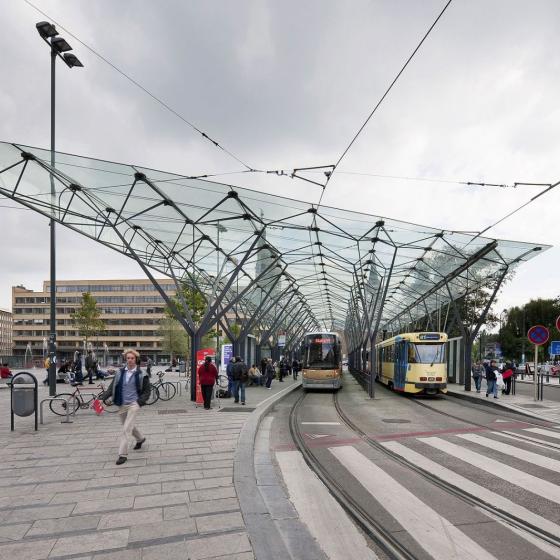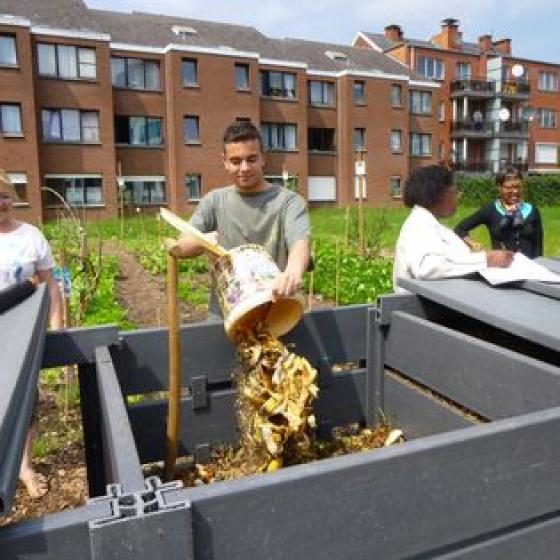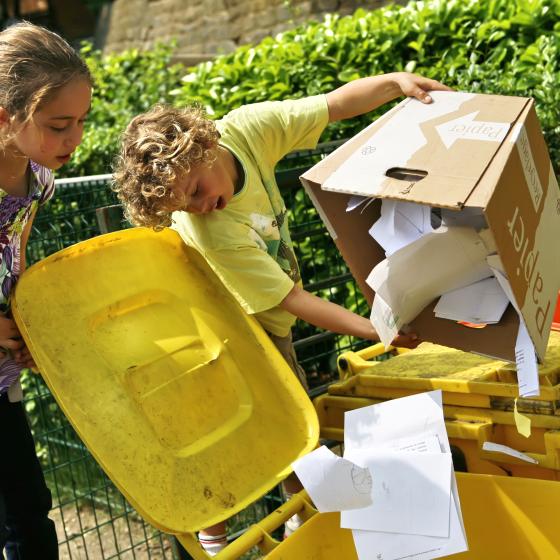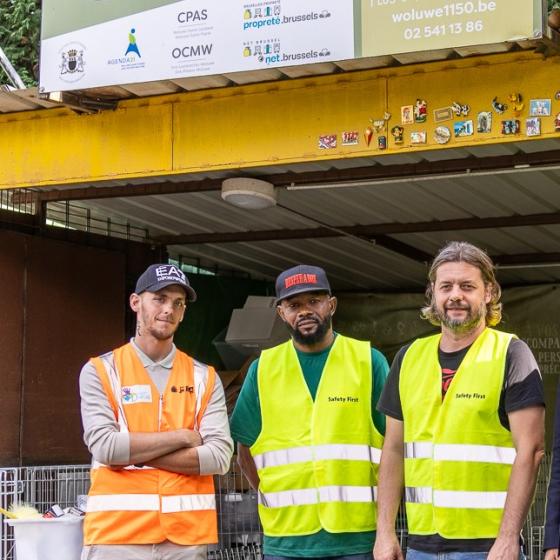Together, let's make the city shine!


One strategy
14 goals
For a sustainably cleaner region

Consultation and cooperation between the Region and the municipalities
Strengthen operational collaboration between institutional actors in charge of urban cleanliness
Reduction of fly-tipping in public spaces
Reduction of littering
Reduction of discarded cigarette butts
Improved presentation of rubbish bags for collections
Public actors setting an example on the environment
Prepare for the city of the future in terms of urban planning and infrastructure promoting cleanliness
Effective communication to encourage good cleanliness practices in public spaces
Participation: participation and involvement of the public to improve urban cleanliness
Education in good urban cleanliness practices and respect for the environment
Use of fines or alternative penalties to reduce anti-social behaviour
Reduction of waste production by businesses and shops
Involvement of the business sector in preventing littering

1. Regional-municipal consultation
Consultation and cooperation between the Region and the municipalities
Learn more2. Operational collaboration
Strengthen operational collaboration between institutional actors in charge of urban cleanliness
Learn more3. Fly-tipping
Reduction of fly-tipping in public spaces
Learn more4. Litter
Reduction of littering
Learn more5. Cigarette butts
Reduction of discarded cigarette butts
Learn more6. Presentation of rubbish bags
Improved presentation of rubbish bags for collections
Learn more7. Setting an example
Public actors setting an example on the environment
Learn more8. Tomorrow’s city
Prepare for the city of the future in terms of urban planning and infrastructure promoting cleanliness
Learn more9. Effective communication
Effective communication to encourage good cleanliness practices in public spaces
Learn more10. Citizen participation
Participation: participation and involvement of the public to improve urban cleanliness
Learn more11. Education for all
Education in good urban cleanliness practices and respect for the environment
Learn more12. Prevention and enforcement
Use of fines or alternative penalties to reduce anti-social behaviour
Learn more13. Reduced waste production
Reduction of waste production by businesses and shops
Learn more14. Participation in litter prevention
Involvement of the business sector in preventing littering
Learn more- Improving the living environment and attractiveness of the Brussels-Capital Region
- Improving the environment and biodiversity
- A common action plan
- A new form of governance
- A culture of assessment
- Co-constructed with all the actors concerned
- Rooted in the reality of life in Brussels
- With input from behavioural psychology studies
- Visible on the ground
- Positive effects on community life
- An environment that is more pleasant and healthy
Nieuws
Alles over het plan en de bijbehorende activiteiten
A long-term plan
- Launch of multi-stakeholder working groups for the co-construction of the clean.brussels strategy
- Assessment of public cleanliness policies
- Insights from behavioural science in order to understand positive and negative cleanliness behaviours
- Citizen consultation and participatory forums
- Drafting of the strategic plan
- Calls for cleanliness-related projects to the municipalities
- Adoption by the Brussels Government of the strategic plan
- Implementation of concrete actions
- Annual monitoring of progress on the strategic plan
- Ongoing evaluation of urban cleanliness indicators
- Updating of the strategic plan while holding course on making Brussels cleaner on a permanent basis

Everyone has a role to play
The cleanest city is not the city that is cleaned the most, but the city that is made the least dirty.
Cleanliness is therefore the concern of all users and all managers of public space in the Brussels Region.
Emblematic measures
In the « clean.brussels » strategy, 15 measures are identified as emblematic because they are highly impactful or innovative, promote the taking of responsibility, or encourage better coordination between operational actors.





